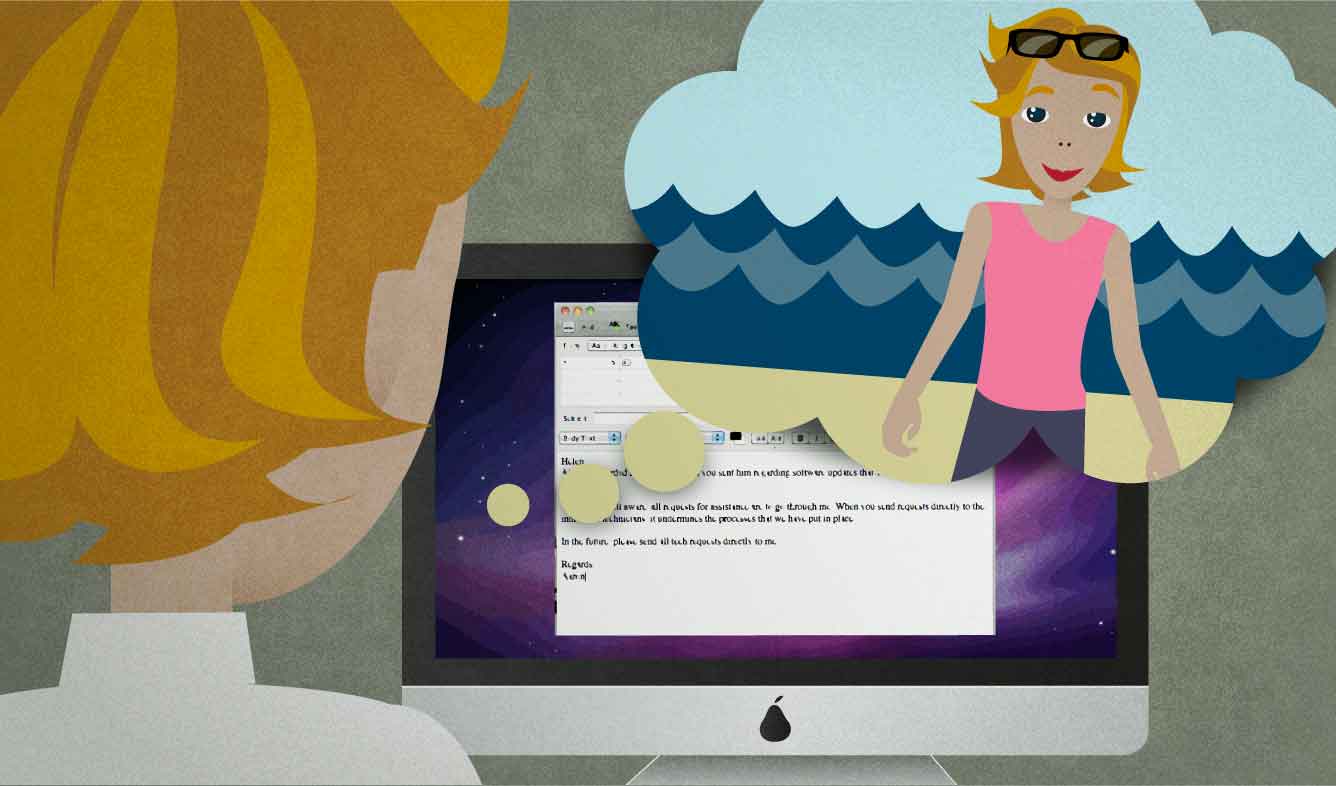“I will be out of the office for the week of December 27, with limited access to e-mail.”
You're going on vacation. You want to leave a message on your e-mail that lets people know that you're not at work. You write this in your out-of-office message.
I will be out of the office for the week of December 27, with limited access to e-mail.
Want Video and Sound? Follow us on YouTube

I will be out of the office
This is the standard expression to write in an e-mail "out-of-office" message:
I will be out of the office.
You don't usually use "will" to talk about your future actions, but in more formal English you can. In more casual situations it's more common to use "going to". For example, if you tell a coworker about your vacation, a good way to explain it is:
I'm going to be out of the office next week.
the week of (date)
When you need to refer to a specific week, you can pick a day that falls during that week, and call it "the week of (that date)":
I think we're coming the week of June 4th.
Usually you use the first day of the week (Monday) as the date in this expression. But you can also use other days of the week. If you only remember one date during that week, you can use that date, whether it's the first day of the week or not.
limited access to (something)
When something is "limited", it means that you can't get a lot of it. For example:
Money is limited these days.
This means that you don't have much money.
"Limited access to ___" means that you aren't able to see or use something very much:
The money is going to help families who have limited access to safe drinking water and medical care.
At my work, we only have limited access to the Internet. They block a lot of sites that don't have a clear business purpose.
